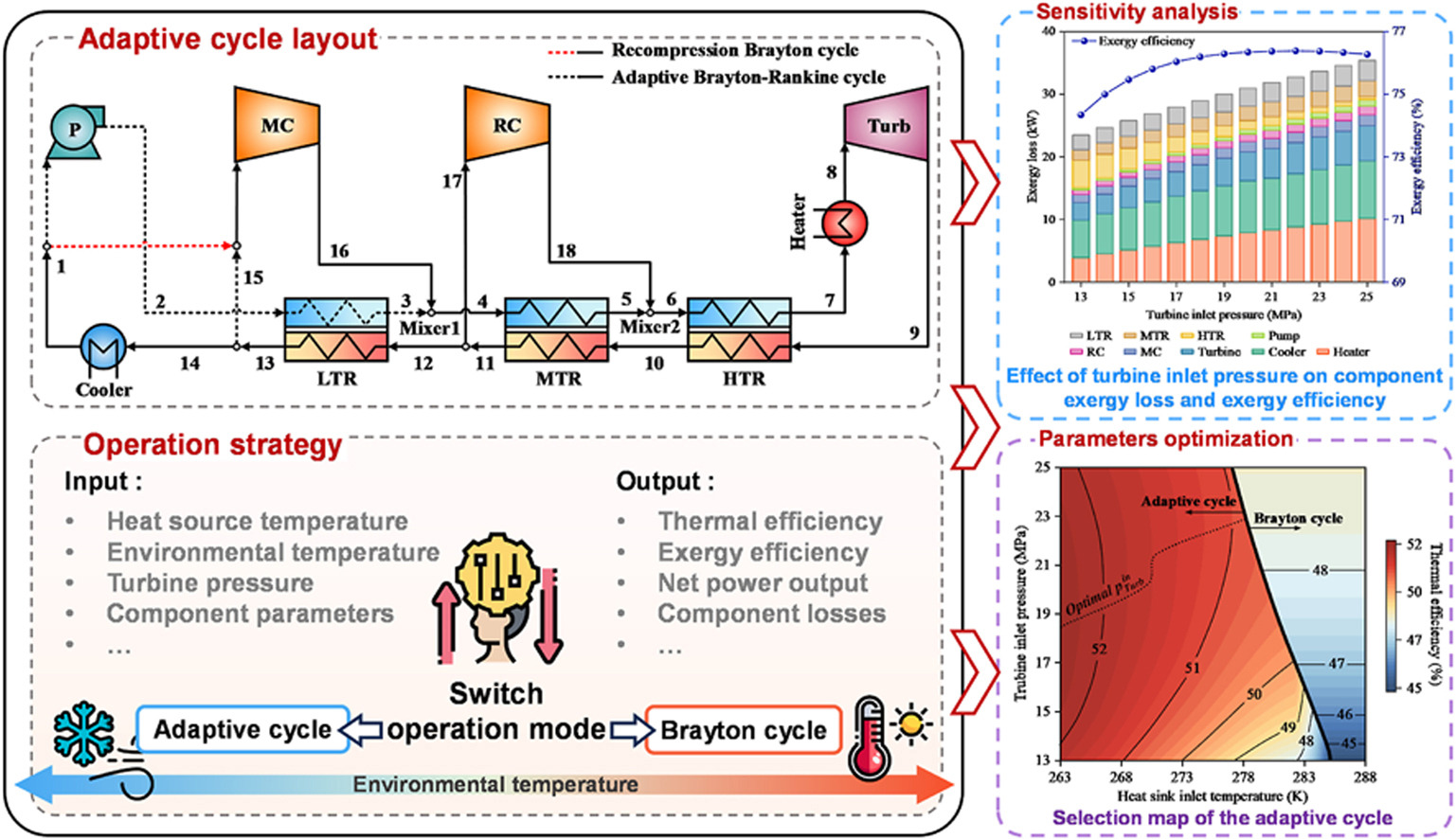Liang Yingzong

|
- 教授
- Supervisor of Doctorate Candidates
- Supervisor of Master's Candidates
- Name (English):Liang Yingzong
- Name (Pinyin):Liang Yingzong
- Date of Employment:2018-12-27
- School/Department:School of Materials and Energy
- Contact Information:yliang@gdut.edu.cn
- Professional Title:教授
- Status:On-the-job
- Alma Mater:The Hong Kong University of Science and Technology
- Teacher College:School of Materials and Energy
- Discipline:工程热物理
 Contact Information
Contact Information
- ZipCode:
- PostalAddress:
- Telephone:
- Email:
- Paper Publications
An adaptive CO2 Brayton-Rankine power cycle for efficient utilization of low environment temperature: A thermodynamic analysis and optimization study
Release time:2024-01-02 Hits:
- Impact Factor:11.1
- DOI number:10.1016/j.jclepro.2023.140547
- Journal:Journal of Cleaner Production
- Abstract:The supercritical CO2 recompression Brayton power cycle has emerged as a promising technology for power generation. However, CO2's critical temperature limits ability of the cycle to fully harness the low environmental temperature, thereby hindering further improvements in thermal efficiency. To address this limitation, we propose a novel adaptive Brayton-Rankine power cycle capable of efficiently utilizing the low environmental temperature. The adaptive cycle is designed to adjust to changes in ambient temperature by switching between operating modes. Moreover, as the adaptive cycle optimization involves the calculation of two-phase thermophysical properties, it presents a challenge in determining the correct root of the model. To tackle this issue, we have developed a two-step solution algorithm to simultaneously optimize the cycle while ensuring correct vapor/liquid solutions. Comprehensive case studies are conducted to demonstrate the effectiveness of the proposed adaptive cycle, and thermodynamic analyses are performed to explore the impact of key parameters on the cycle's performance. The results reveal that at a heat sink inlet temperature of 278.15 K, the thermal efficiency of the adaptive cycle reaches 50.87%, which is 2.52%pt higher than that of the sCO2 recompression Brayton cycle. Furthermore, we identify the operating region of the adaptive cycle to provide guidance for selecting the optimal operating mode of the power cycle based on the environment temperature and the operating conditions of the cycle.
- Co-author:Zhanyu Guo,Zhi Yang,Jianyong Chen,Jiacheng He,Ying Chen
- First Author:Yingzong Liang
- Indexed by:Journal paper
- Correspondence Author:Xianglong Luo
- Volume:435
- Page Number:140547
- Translation or Not:no
- Date of Publication:2024-01-05
- Included Journals:SCI


